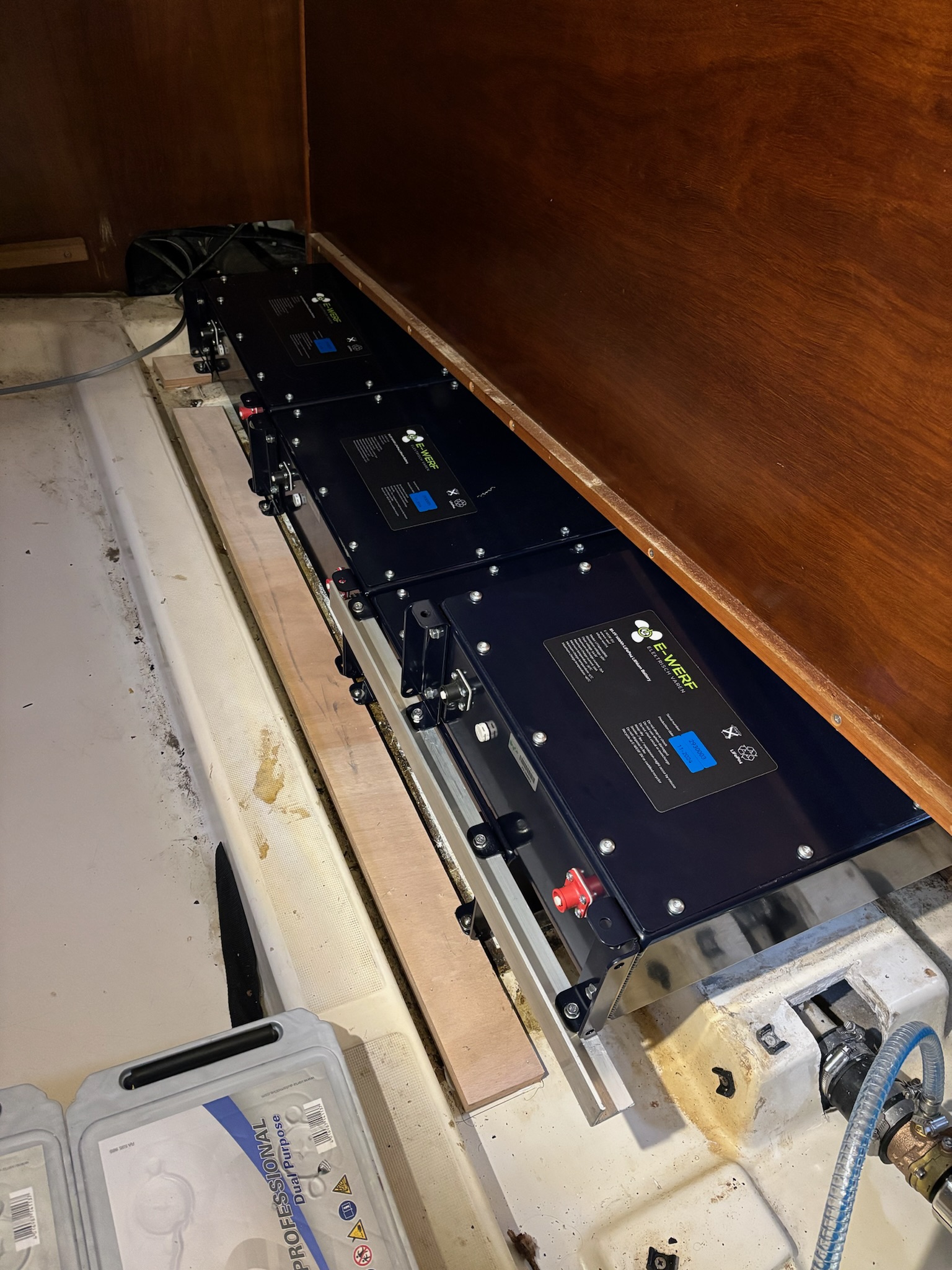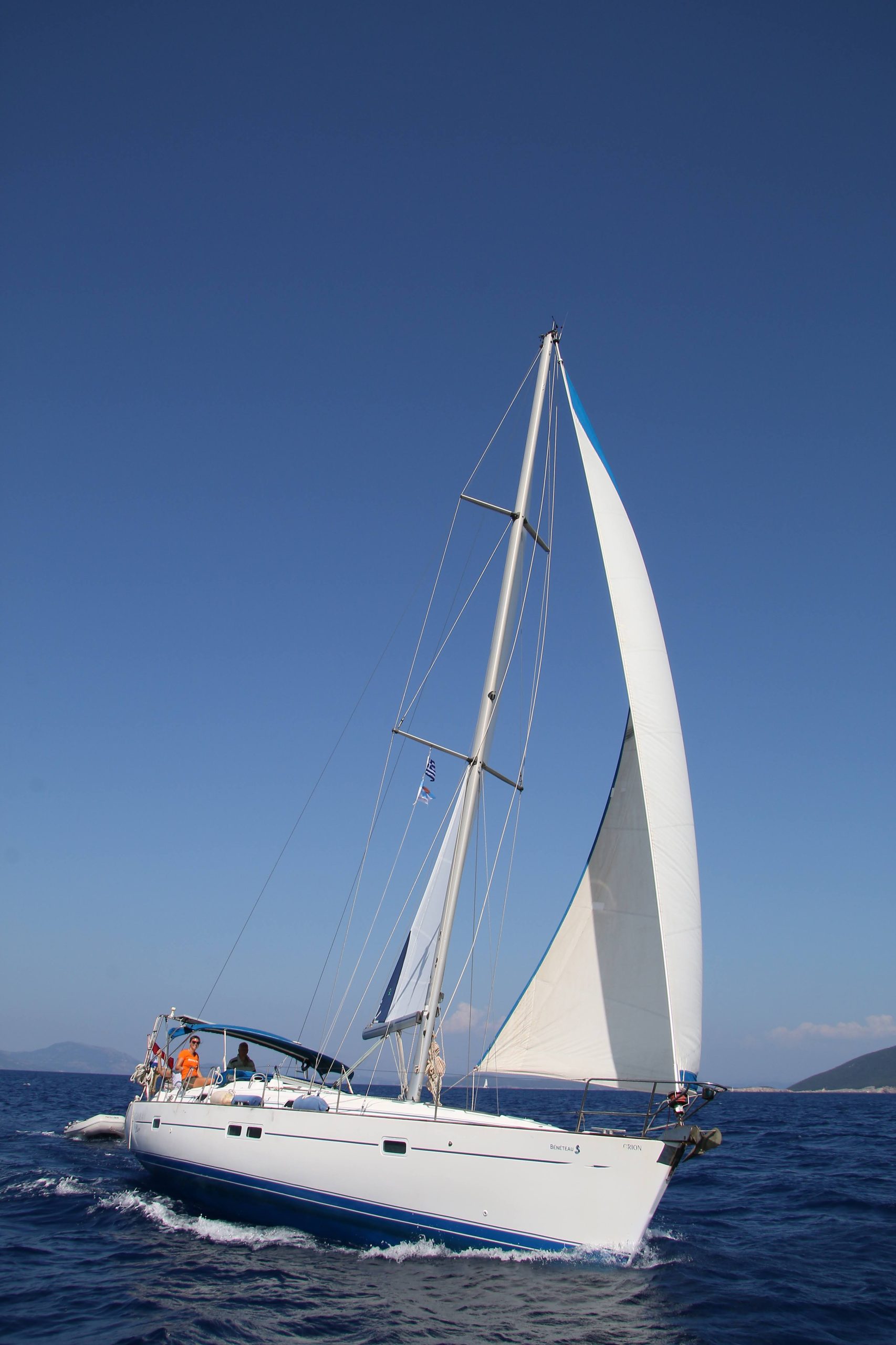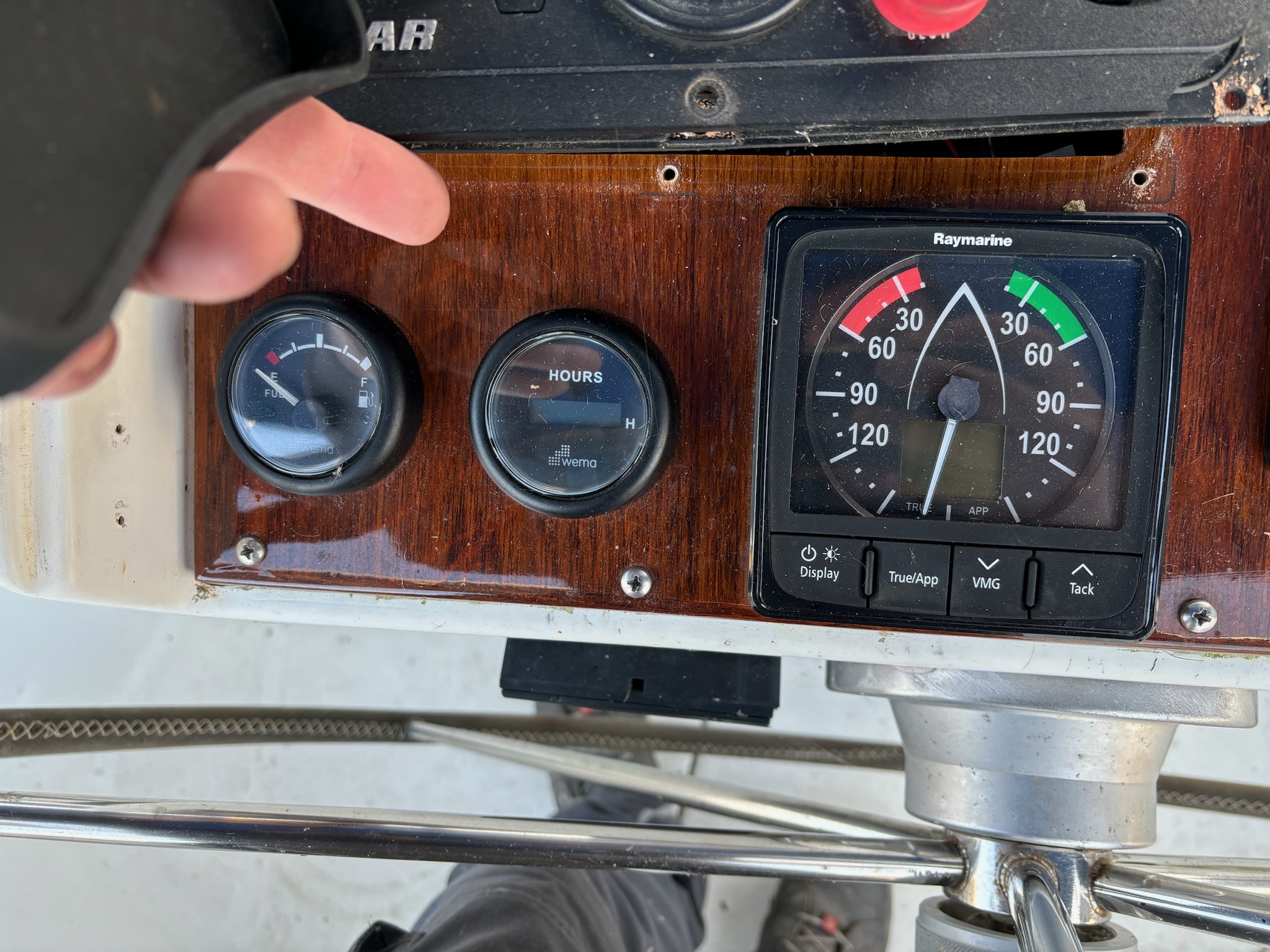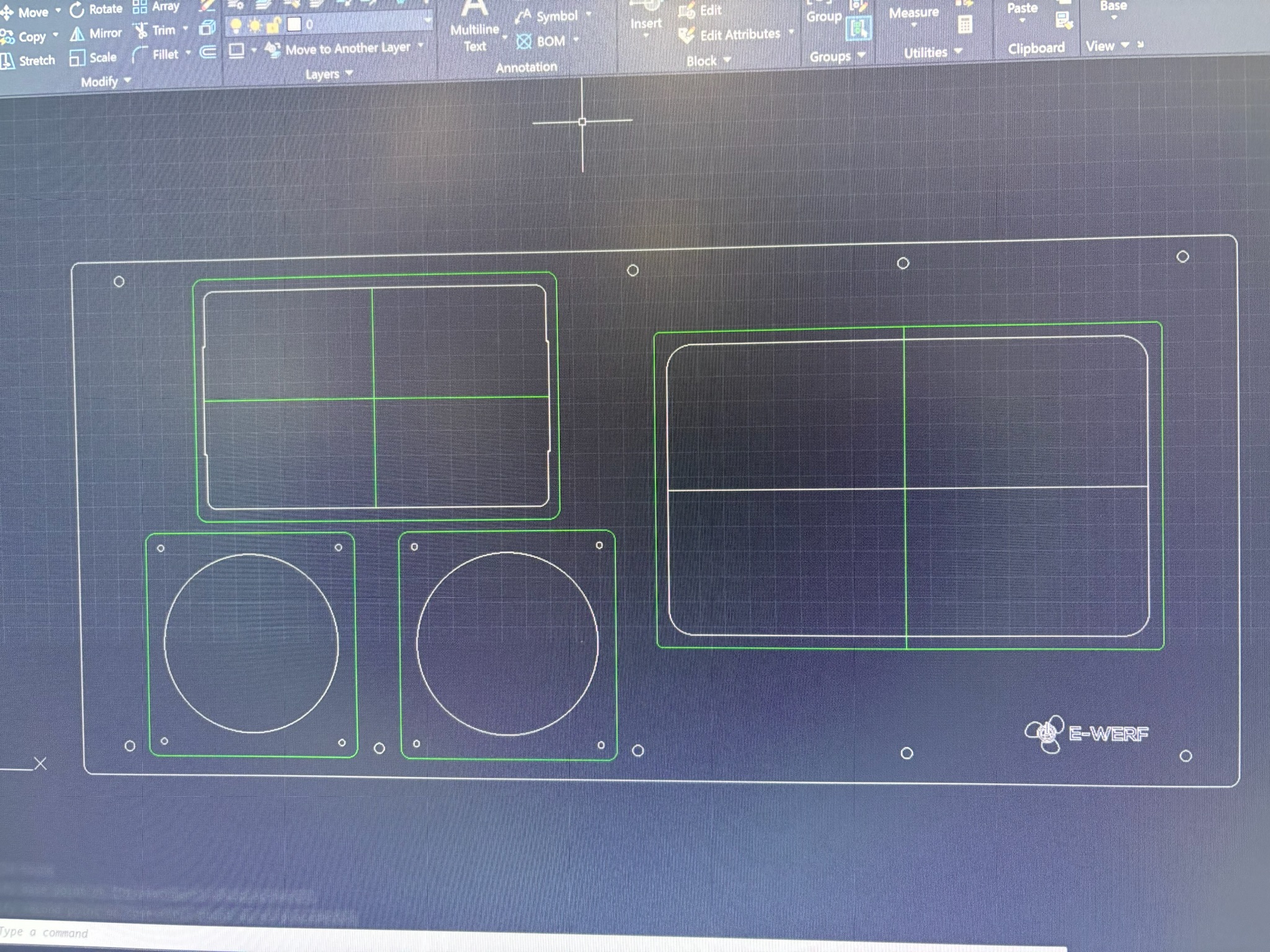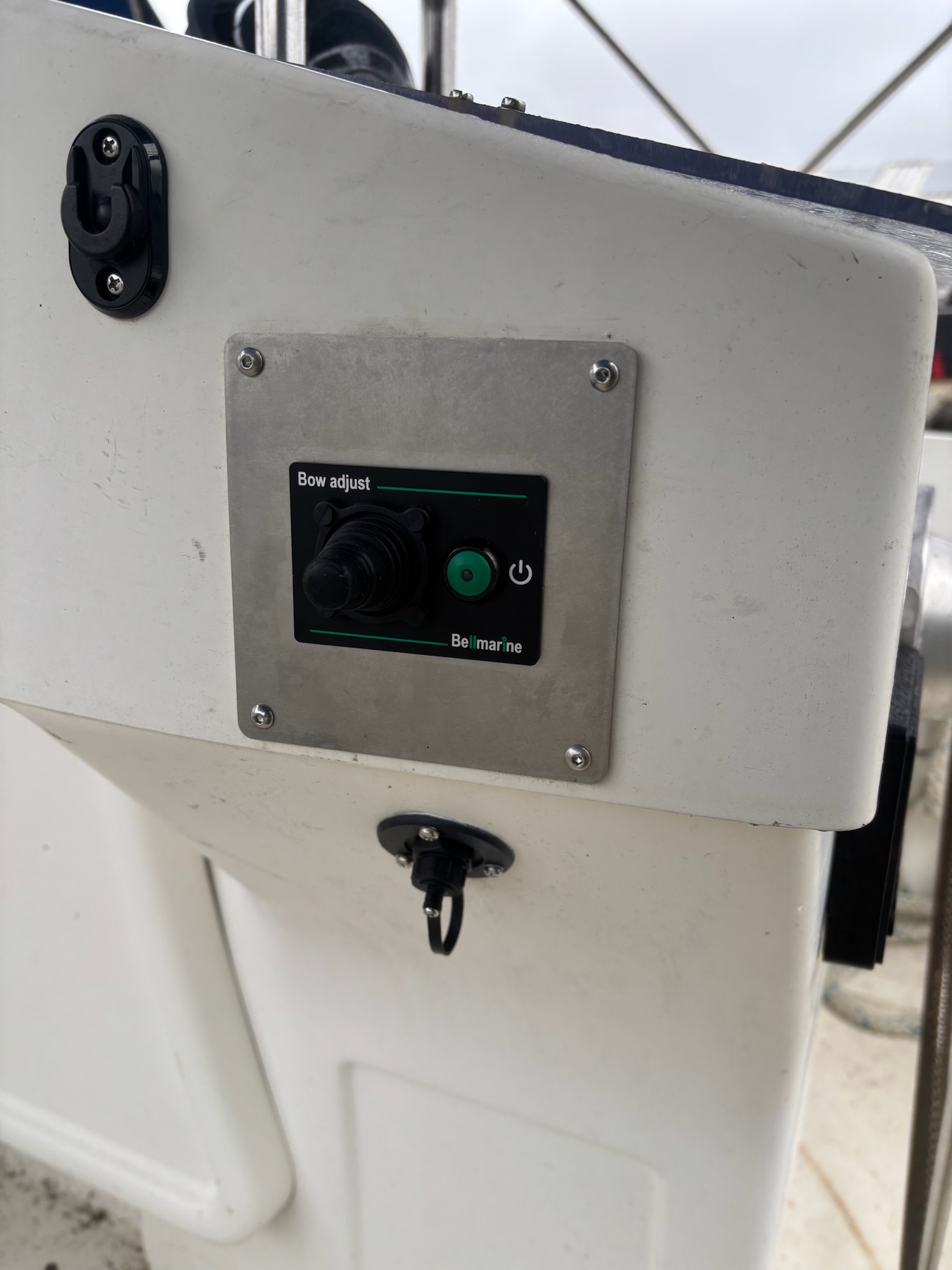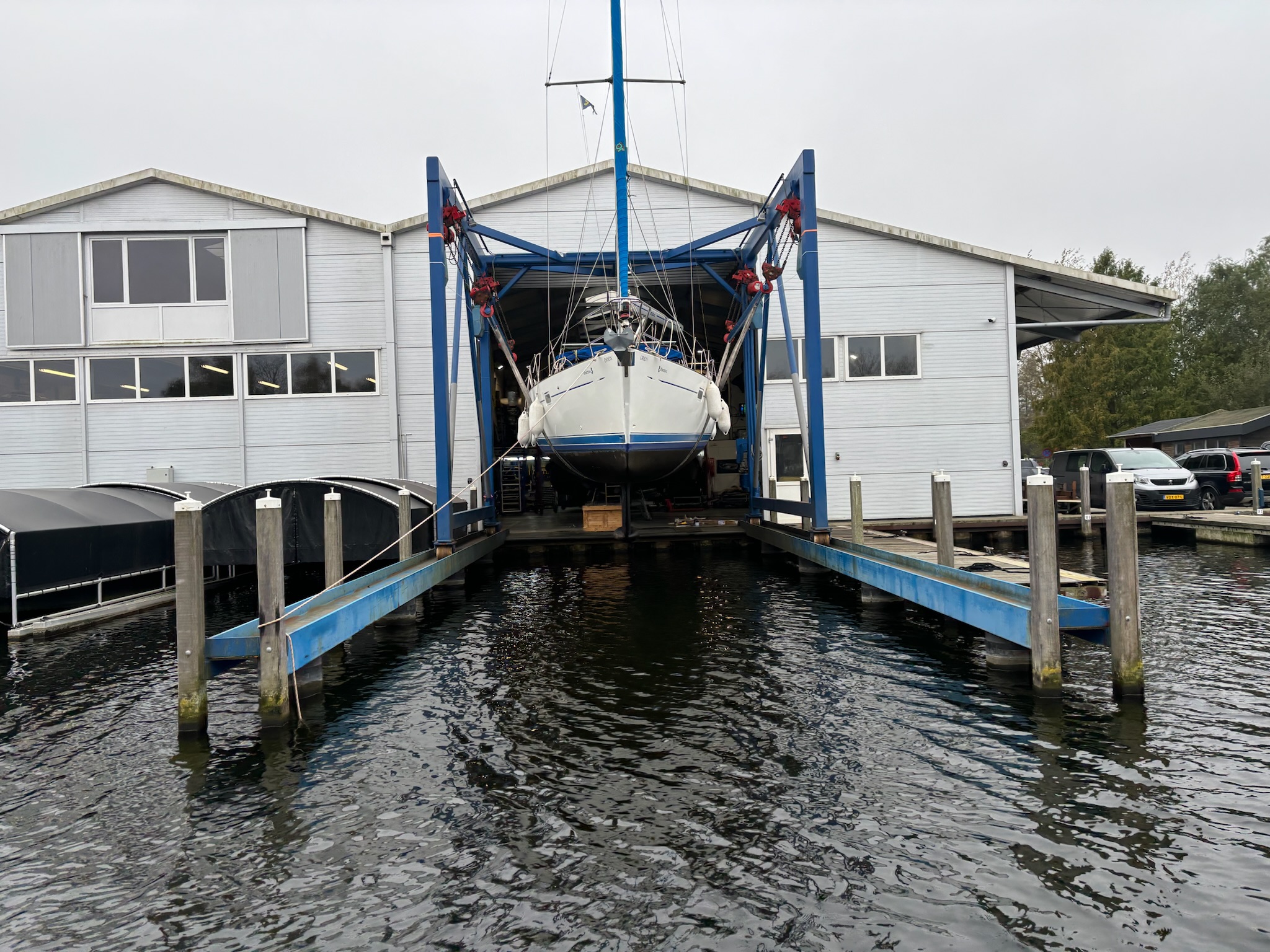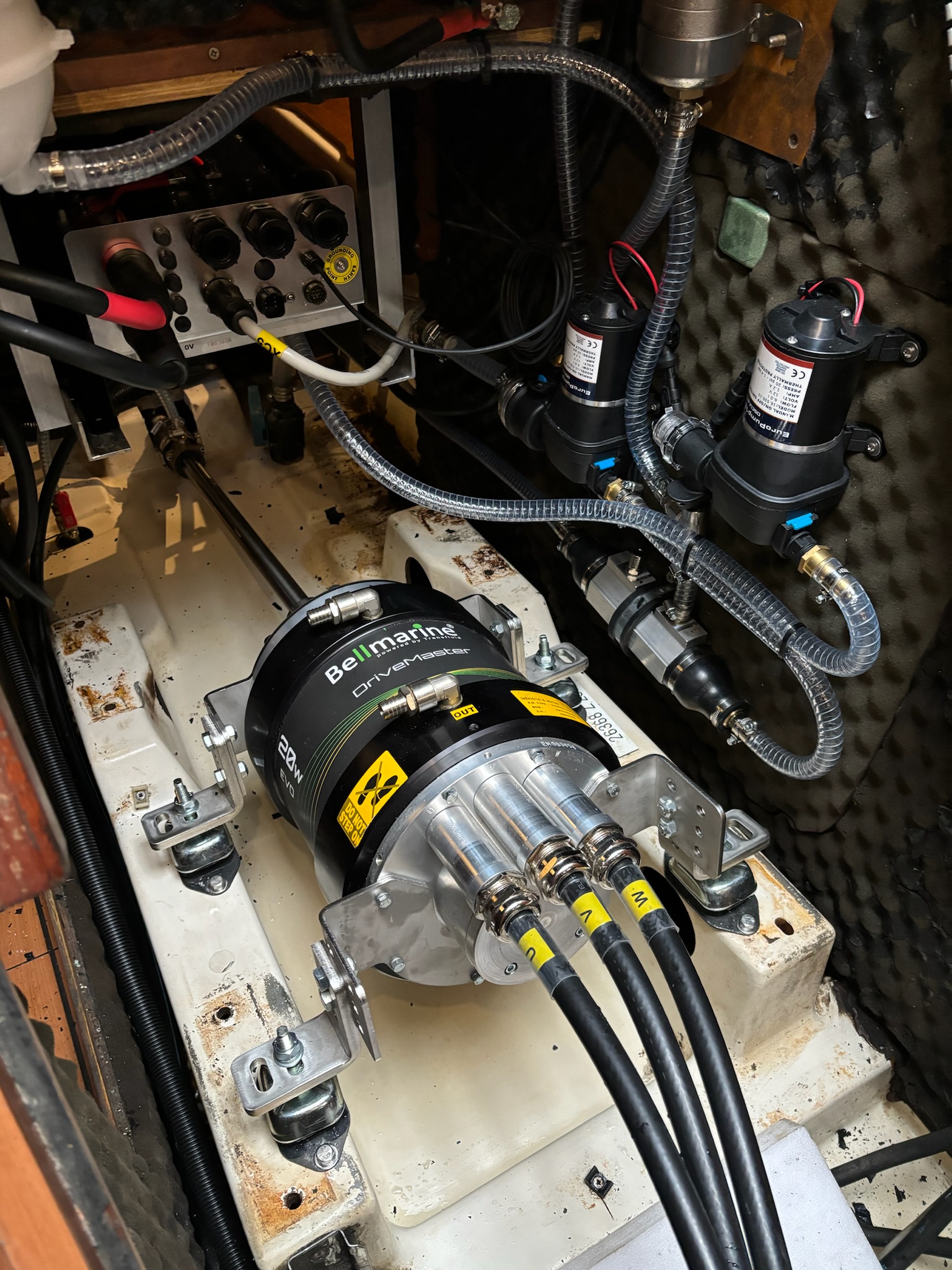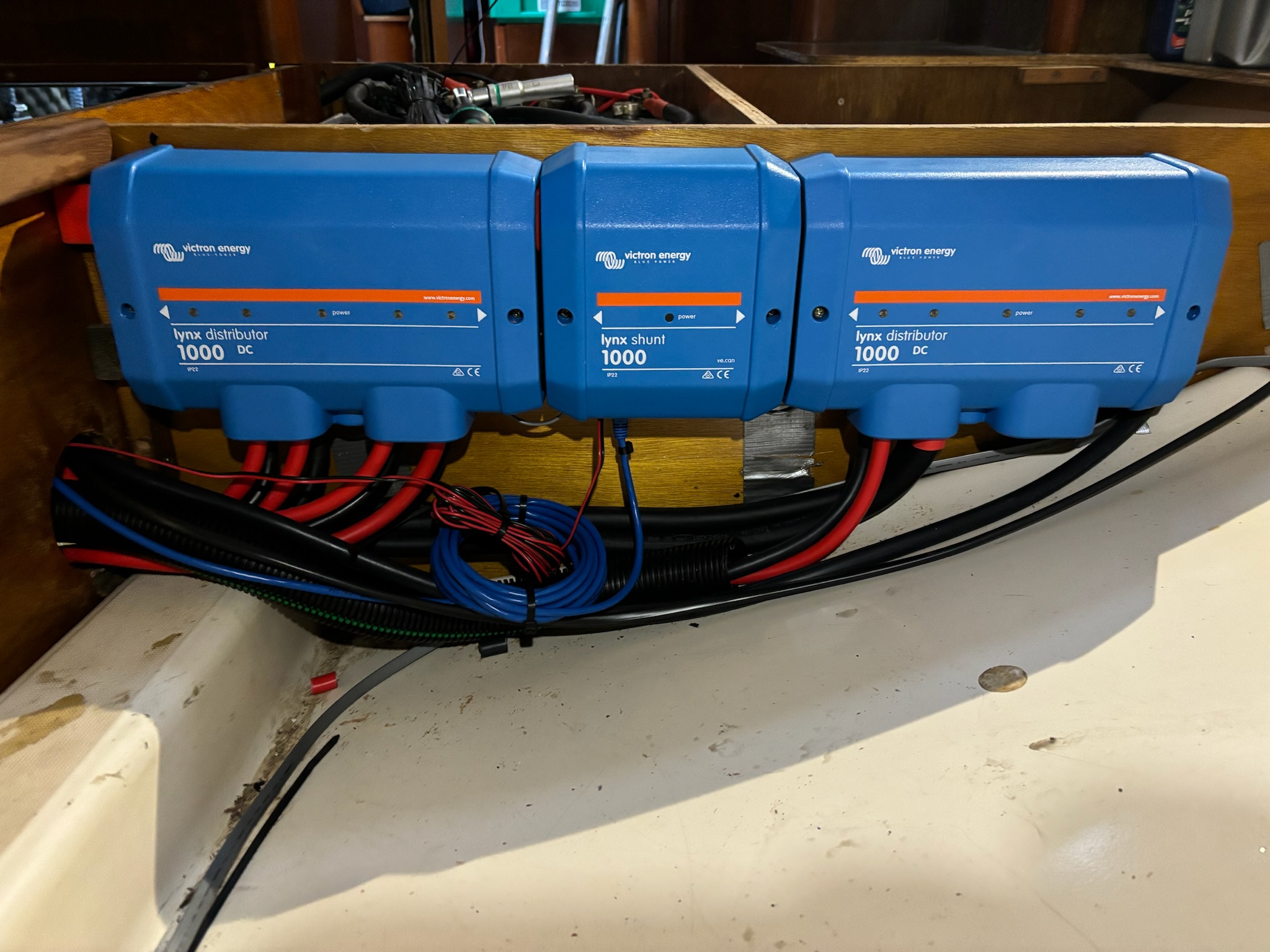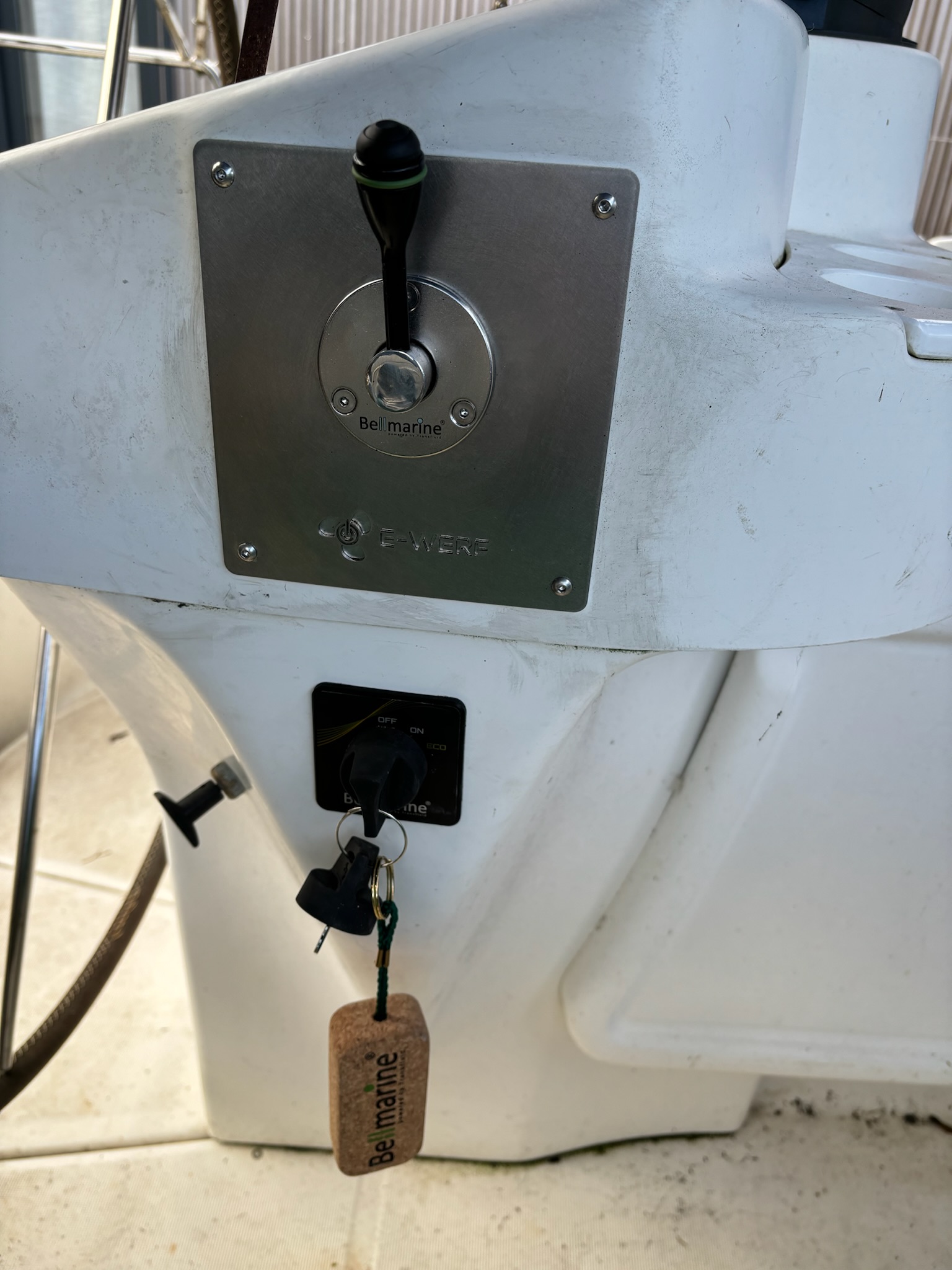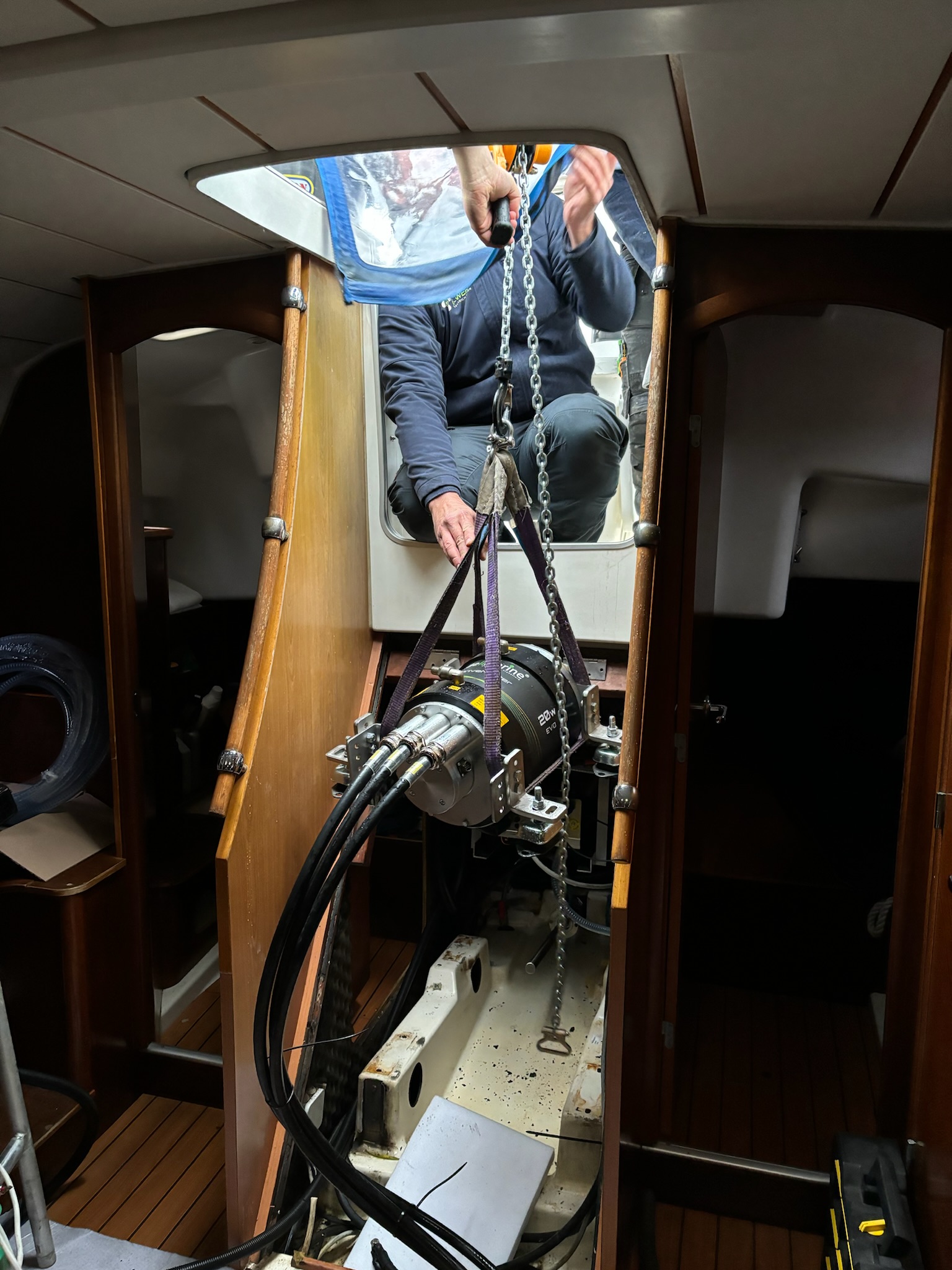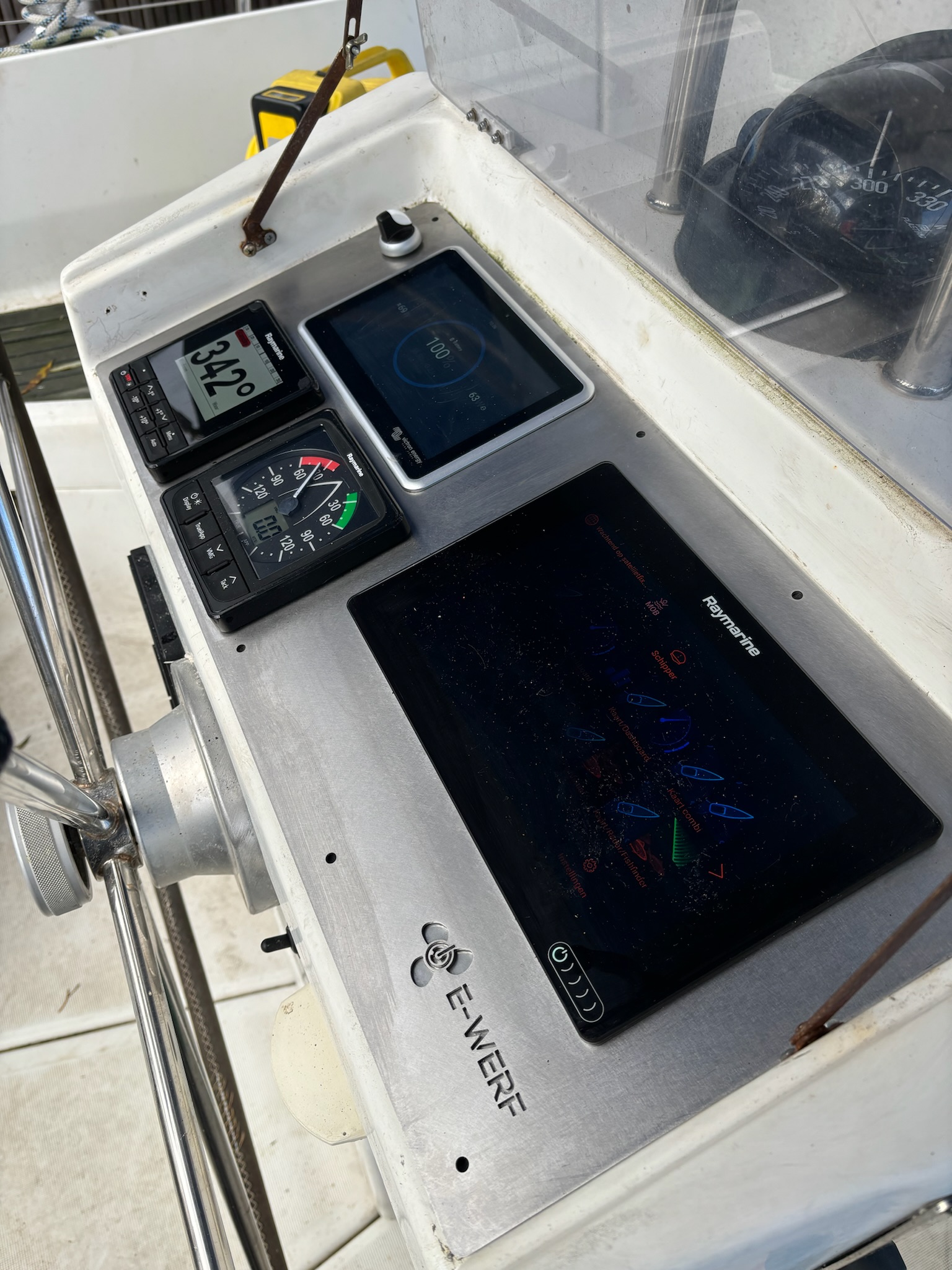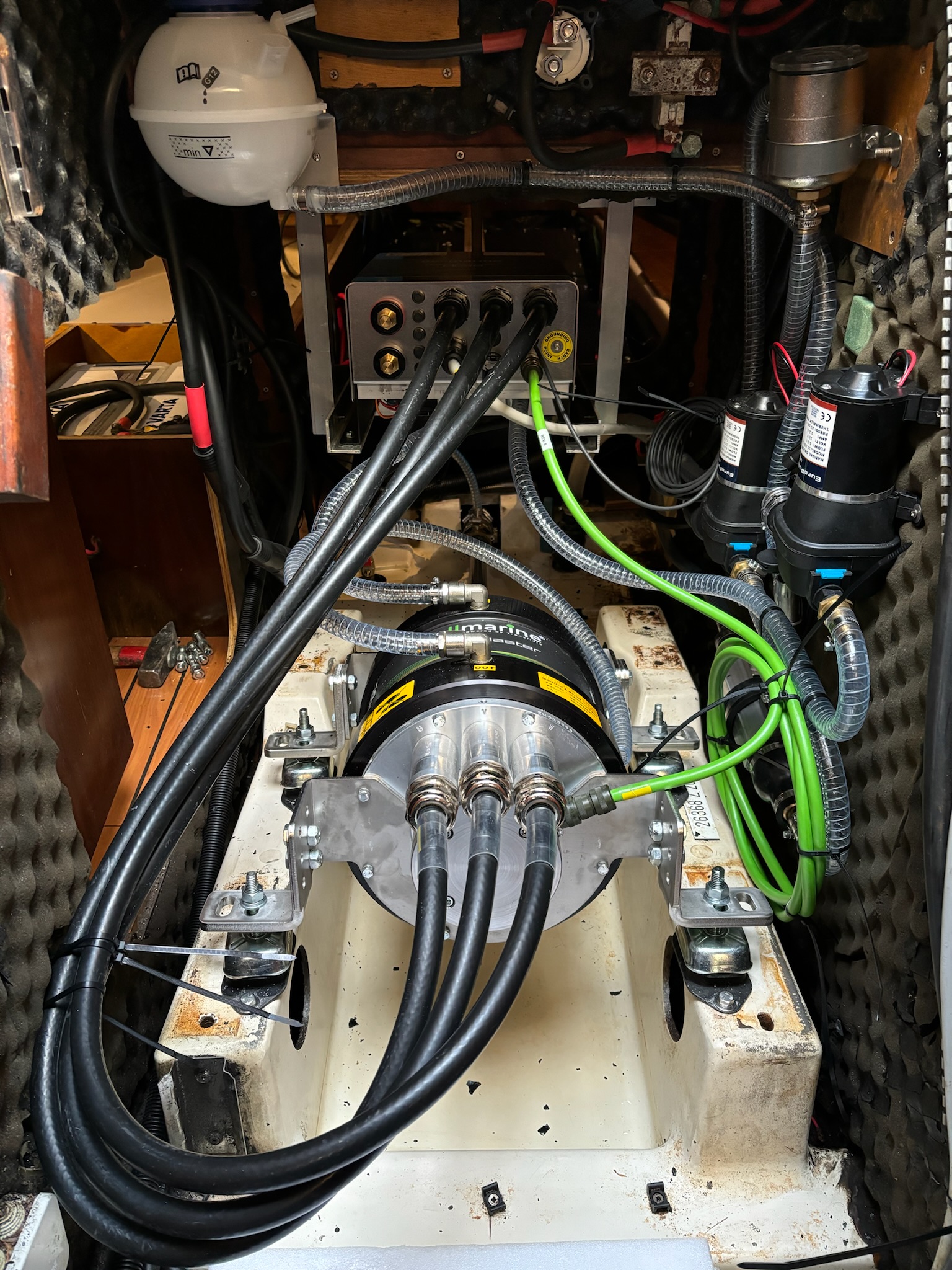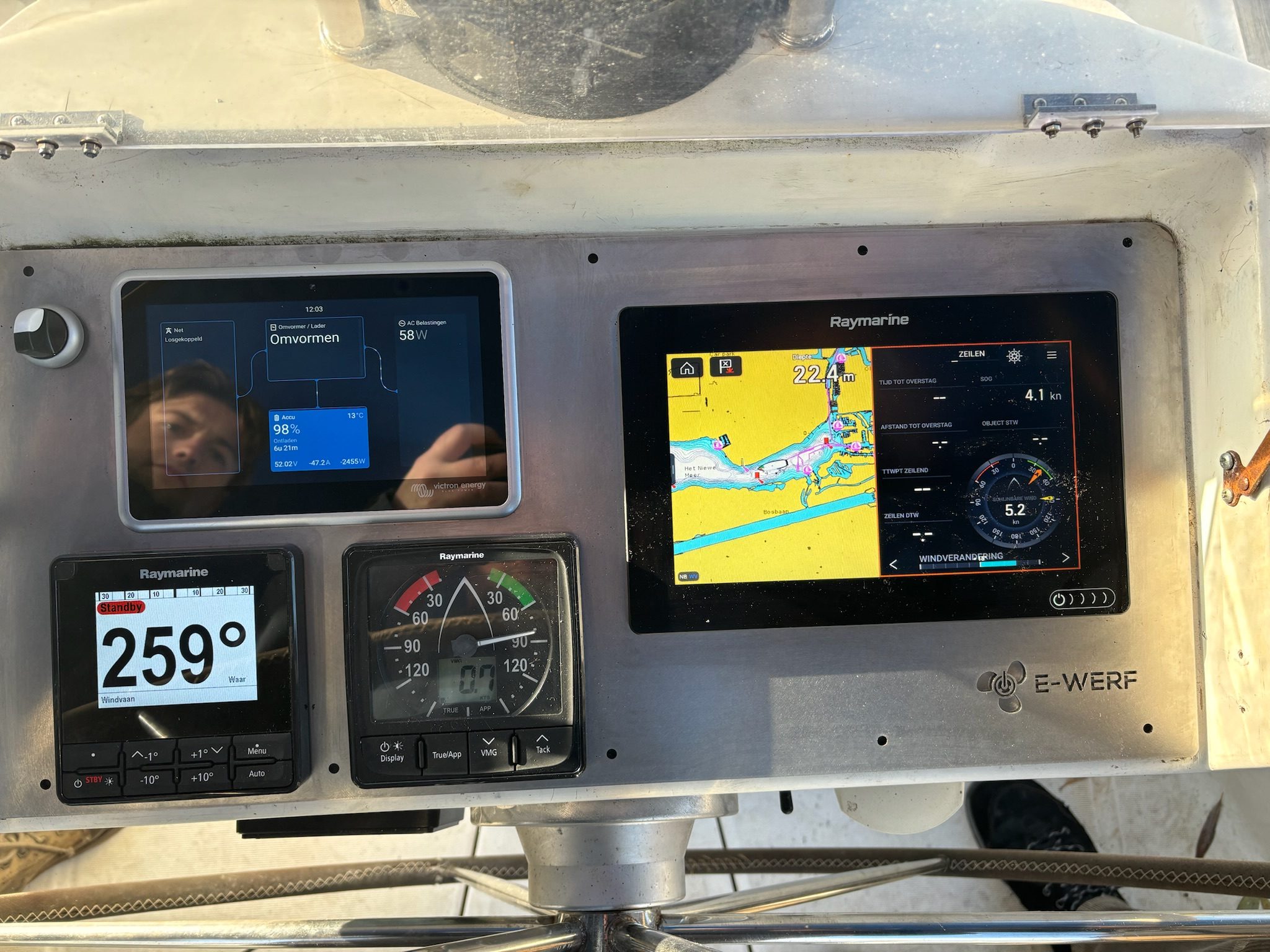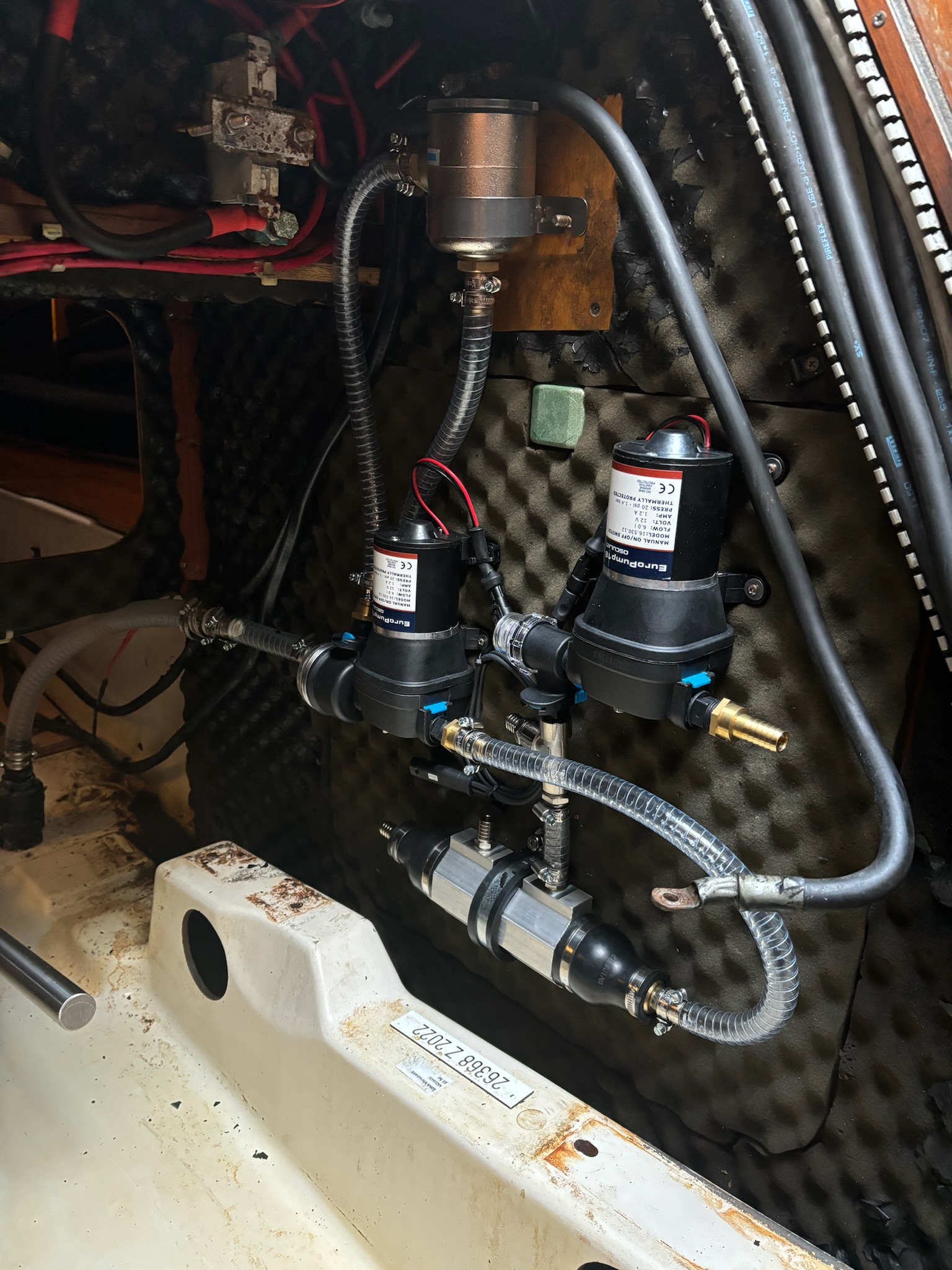Beneteau Oceanis 411 | Full Electric
Boat name
Dimensions LxWxH
Year of construction
Type of project
Status
Motorisation
Battery pack
Load switching Integration NMEA
Shore power steering
Other
An electric drive on a sailing yacht. How do you like it?
Meanwhile, we also sailed with the owner of Orion-E, the world's first electric Beneteau Oceanis 411. The owner is very happy with the result and the boat exceeds his expectations. The Beneteau now sails faster, quieter and manoeuvres better than the with the 52 hp Yanmar that came out of the boat. Would you like the same for your (sailing) boat? Then feel free to contact us.
The rationale for going electric
The article below appeared in "Sailing" magazine in December 2024
Why did you replace the engine?
Why did you replace the engine?
As electric boating began to become an increasingly realistic alternative. This is also part of the
expected use of the boat: it is in Lelystad and I will mainly sail on the IJsselmeer, with a planned crossing to the UK in 2025 (span-
nend!) and a visit to the Wadden Islands. Moreover, the old engine was still a noisy and
smelly (but otherwise very reliable Yanmar) diesel. The engine was elderly: about 26 years old and had at least 5500 running hours on it. By the way, when it was replaced, blue smoke was coming out of the exhaust. So it was time for a
serious overhaul. However, I had taken the decision to replace the engine earlier, when I did not know that overhaul would present itself.

Why did you choose electric?
I have been driving electric myself for about seven years and am a so-called early adopter. Especially the first few years, I seriously suffered from so-called range anxiety. But driving electric is phenomenal: the silence, the stepless acceleration, no vibration, etc. That line can also be extended to electric cruising: The silence, the absence of exhaust fumes and diesel smell, the much smaller size of the electric motor and its huge torque have been the deciding factors. Furthermore, I find the possibility of regenerating energy while sailing and with solar panels an attractive added value. Practice will tell, but if you plan sailing trips smartly, there will always be enough energy on board. Sailing on fossil fuel is therefore no longer a real alternative for me. In addition, there are some practical
advantages: Because there is 5000VA inverter built-in, I always have 230v on board. Theoretically, I could even go electric for cooking, but of course that is not conducive to the range.
Have you considered other options besides electric?
Not for a moment. If electric cruising had not offered itself as a real option, I would have simply sailed on with this engine, after (i.e.) a serious overhaul.
What were the costs?
These are not small, but since this is mainly a fun hobby/sport, I have every sense of
rationality deliberately suppressed. So no return on investment or efficiency calculations; that's pointless. The electric motor, including four new 5Kwh 48v lithium batteries, motor management system, a charger/inverter and, of course, assembly costs around €35K. This already includes the amount I still received back for the old engine. This is then for 41-foot sailing yacht. I had the boat converted at E-Werf in Amsterdam. They listened to my wishes and thought along about the various options, such as the power of the electric motor and the size of the battery pack (and thus the range). By the way, the batteries are nice and flat (half the height of normal batteries) and fit with The four of us on the site of the former diesel tank
